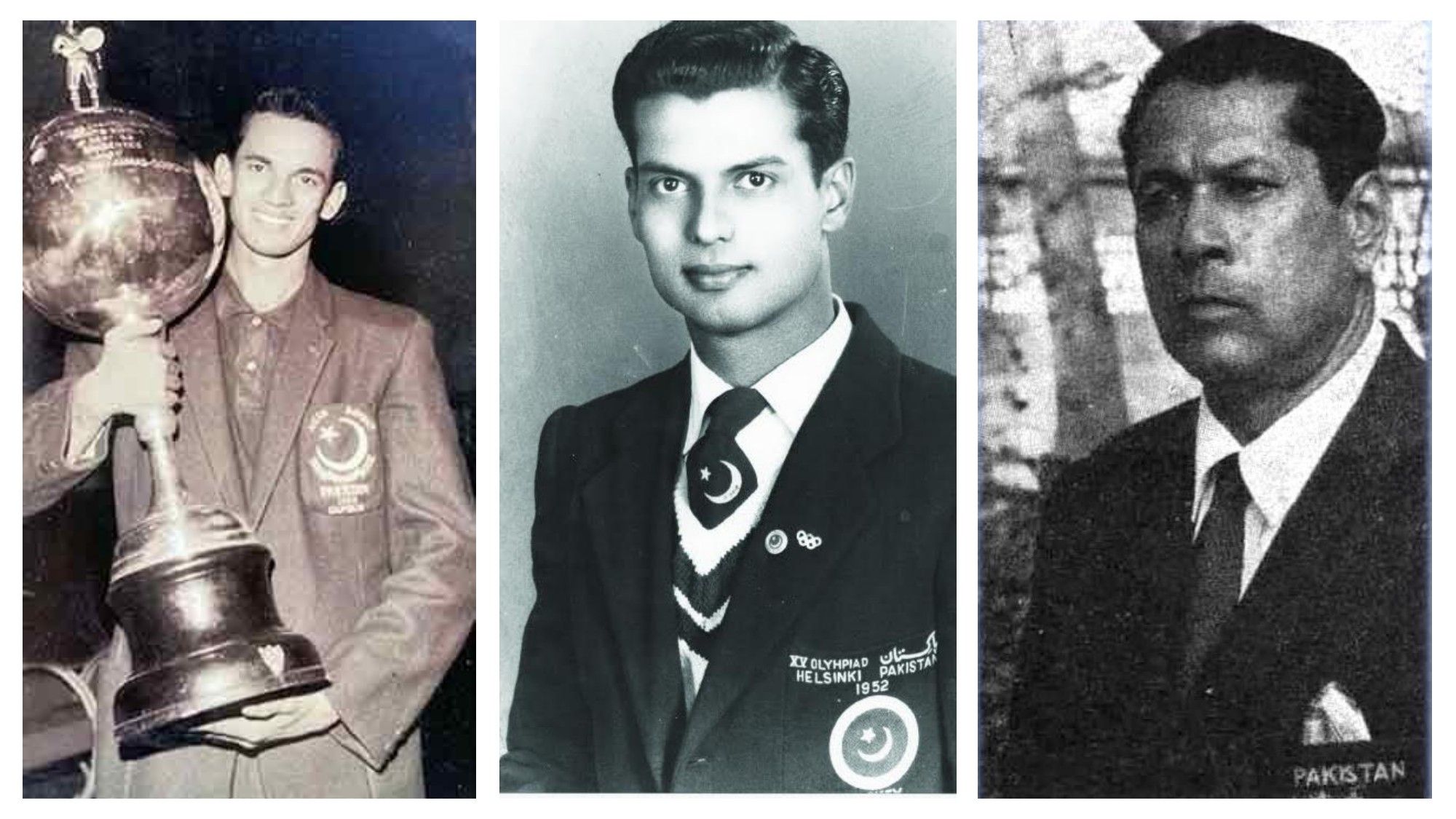
Christian contributions to sports in Pakistan: A legacy of passion and perseverance
SportsFrom the playing fields of colonial India to Olympic glory and Test cricket milestones, Christian athletes have played a pivotal role in shaping Pakistan’s sports history
Jul 06, 2025
Jul 06, 2025
Share
Share this link via
Copy Link
https://nukta.com/christian-contributions-to-pakistan-sports
Well before Pakistan emerged as an independent nation, Christian athletes were already making their mark across British India’s most prestigious sports arenas.
From the pre-Partition days to Pakistan’s first Olympic team, and from record-breaking cricketers to champion powerlifters, their impact has been both historic and enduring. Despite limited recognition, the Christian community’s role in shaping the country's sporting identity remains both significant and underappreciated.
The pre-partition legacy (1920s–1947)
Before the Partition of India in 1947 and the birth of Pakistan, the Christian community had already established a strong presence and formidable reputation in the sports arenas of British India. Nowhere was this more visible than in cities like Karachi, Lahore, Bombay, and Calcutta, vibrant colonial hubs where sport was not only recreation but also a form of cultural expression and social mobility.
Among the Christian communities, the Goans and Anglo-Indians stood out for their deep involvement and outstanding performances, particularly in field hockey and cricket, the crown jewels of the subcontinent’s sporting life. Local clubs, such as the Karachi Goan Association (KGA), St. Patrick’s School and Sports Club, Post & Telegraph, Karachi Rangers, the Port Trust, and the YMCA, produced disciplined and technically brilliant athletes who regularly featured in All-India tournaments, winning several titles and earning acclaim across the region.
As early as 1927, hockey was a sport in which Goan-Christian athletes excelled with remarkable consistency. That year, the KGA team made history by winning both the prestigious All-India Dewar Shield and the Haji Dossul Cup competitions. Among the standout figures of this era was Peter Paul Fernandes, a Karachi-born Goan who represented British India at the 1936 Berlin Olympics. Fernandes holds the distinction of being the first Goan Olympian and was widely recognized for his speed, skill, and tactical brilliance. He played his part helping India win the gold medal, a victory witnessed by an international audience that famously included Adolf Hitler.
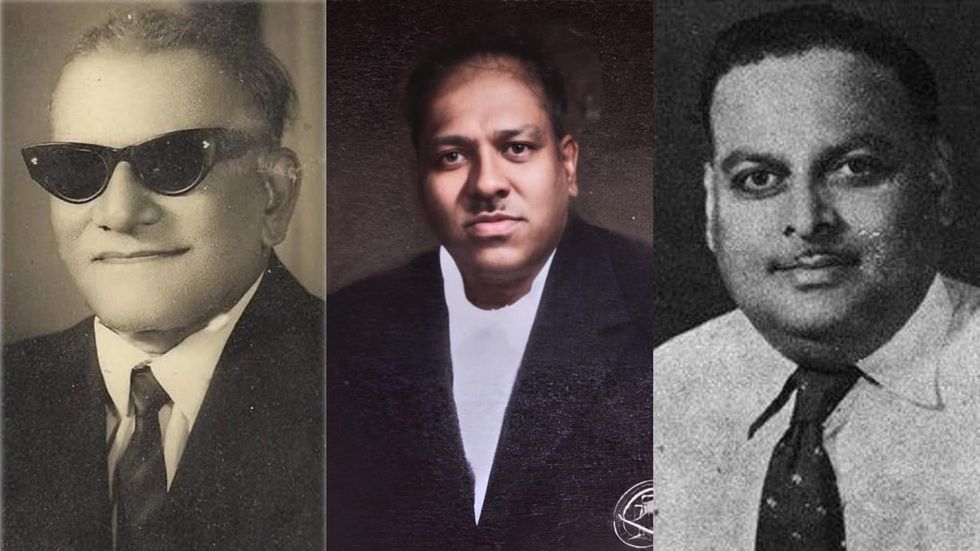
The success of P. P. Fernandes opened the door for many others, showcasing the exceptional skill and promise of Christian athletes in British India. During the pre-Partition years, Christians made significant strides not only in field hockey but also in cricket, track and field, badminton, tennis, and boxing. Their impact was felt both on the field and in sports administration. One of the most influential figures of this era was Anthony D’Mello, a Karachi-born sports administrator who played a foundational role in Indian cricket. He was instrumental in establishing the Board of Control for Cricket in India (BCCI) in 1928 and in launching the Ranji Trophy in 1934, two of the most significant developments in the sport’s history on the subcontinent.
Notable names from this golden era include the great Patrick Mendes, Marceline D’Costa, Lawrie Fernandes, and Julius Tellis—all masterful field hockey players known for their technique and leadership on the field. In cricket, Jacob Harris stood out as a formidable presence in the elite Pentangular tournaments, which brought together the best Hindu, Muslim, Parsi, and Christian players from across India. Harris not only gained fame during his playing days but later went on to mentor and develop future sports stars in newly formed Pakistan. Boxers Bertie Gomes (Heavy Weight) and Hanibal D’Souza (Fly Weight) were All-India champions.
The pioneering years – 1948 and the first Olympic team
Following Pakistan's birth in 1947, the newly independent nation embarked on a journey of self-definition, not just politically and culturally, but also in the realm of sports. Among the many communities that played a vital role in shaping the country's early sporting success was the Christian minority. Despite their small numbers, Christian athletes, mainly Goan, made a lasting impact across multiple disciplines, particularly in field hockey—a sport in which Pakistan would emerge as a global force.
The 1948 London Olympics marked Pakistan's debut on the international sports stage. It was a moment of immense pride for the country, and two Christian athletes were part of this historic journey. Milton D'Mello, a gifted player of Goan-Christian heritage, was a member of that inaugural field hockey team. Alongside him was Oswald Nazareth, who served as the team's co-manager. Their inclusion signaled the important role that the Christian community was already playing in national sports, both on the field and in leadership capacities.
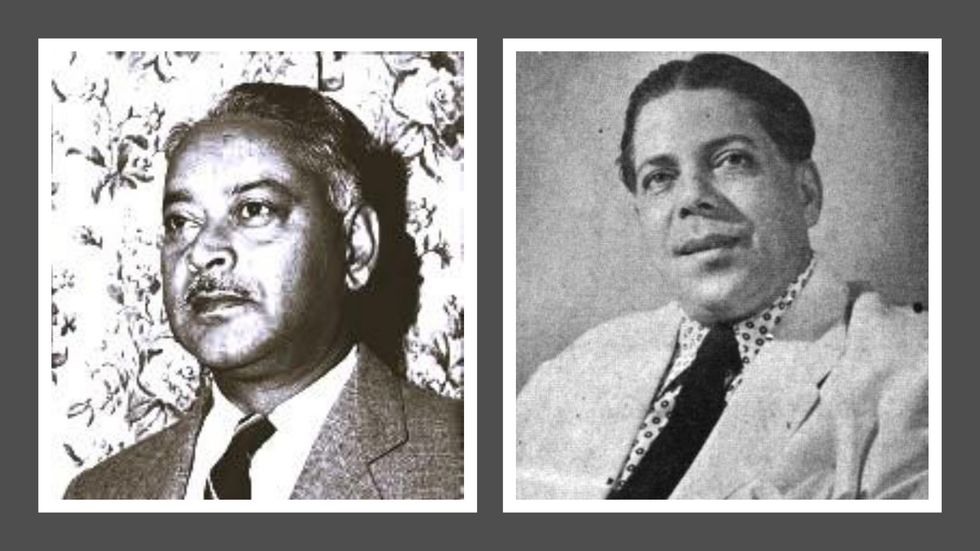
Chief Justice Alvin Robert Cornelius from Lahore was the founding figure of cricket in Pakistan after partition, penning its constitution, and serving as Chairman of the ad-hoc committee for several years. Ironically, the founding fathers of administering cricket, with integrity, in India and Pakistan were Christians.
The superstar who chose Hockey over Cricket
By the time of the 1952 Helsinki Olympics, Jack Britto, a gifted Goan from Karachi, had emerged as one of Pakistan's finest field hockey players. Renowned for his flawless ball control, strategic vision, and athletic prowess, Britto was a standout figure on the national team. His sporting talent extended beyond hockey—he was also selected to play for Pakistan in cricket, a rare dual-sport distinction. However, Britto chose to dedicate himself fully to hockey. Earlier, in 1946, he had represented Sind in the prestigious Ranji Trophy, a testament to his cricketing credentials. Later in life, he moved to East Africa and went on to represent Malawi internationally.
Another notable Goan cricketer from Karachi was Blaise D’Cunha, who played for the Pakistan Under-18 cricket team in 1948 and later represented Kenya at the international level. Both Britto and D’Cunha exemplified Goan excellence in sports, inspiring future generations. Several other outstanding hockey players from this era made their mark across India, including Gerry Barboza, Orlando D’Sa, Nazareth Castellino, Willie Noronha, Clarence Franco, Tony D'Cruz, Archie D’Souza, and George Mills. Their technical brilliance, speed, and tenacity made them forces to reckon with on the field.
The 1950s and 1960s also witnessed two Catholic priests emerge as top-tier hockey players in the Karachi and Baluchistan region—Fr. Melito Dias and Fr. Leslie Colaco. Known for their agility and aggressive playing style, they brought flair and passion to the game. Fr. Melito was a formidable striker on the front line, while Fr. Leslie dominated the flanks. Both were prolific goal-scorers and earned admiration for their consistent performances and sportsmanship.
First non-Muslim cricketers to play for Pakistan
Wallis Mathias holds the distinction of being the first non-Muslim to represent Pakistan in Test cricket. A reliable middle-order batsman and sharp slip fielder, Mathias played 21 Test matches between 1955 and 1962. Known for his steady, anchoring style of play, he often provided crucial support to batting legend Hanif Mohammad during some of Pakistan’s most iconic innings. His fielding abilities earned high praise, notably from the legendary Sir Garfield Sobers, who considered him one of the best slip fielders of his time. After retiring from international cricket, Wallis captained the National Bank of Pakistan team and served as a national selector, contributing to the game off the field as well.
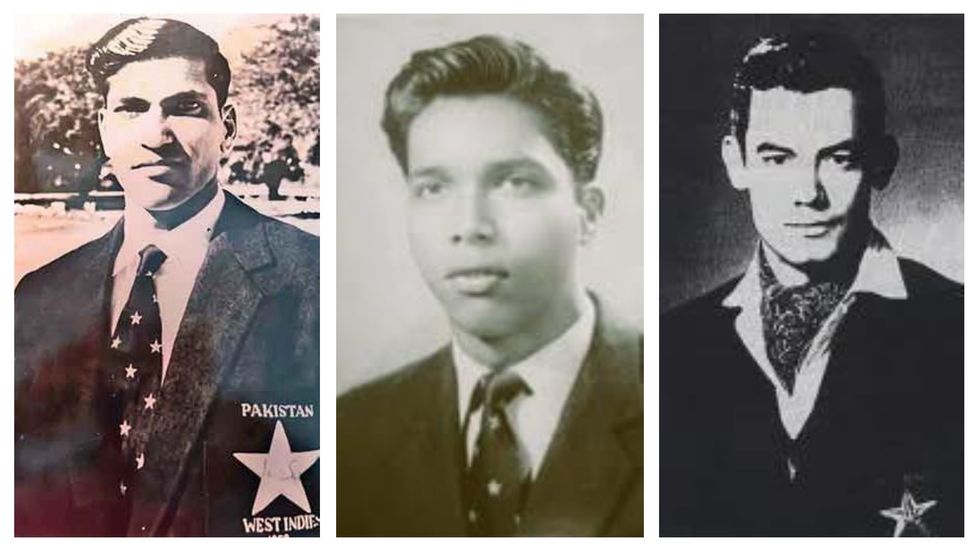
Antao D'Souza, another Christian cricketer of Goan descent, was the second non-Muslim to play Test cricket for Pakistan. He appeared in six Test matches from 1959 to 1962 as a medium-pace bowler. Beyond cricket, he enjoyed a successful career as an overseas Station Manager at Pakistan International Airlines (PIA). Around the same time, Duncan Sharpe, an Anglo-Indian, also made his Test debut for Pakistan in 1959, further highlighting the contributions of religious minorities to the national team during its formative years.
A historic victory at the 1960 Rome Olympics
Pakistan achieved a major milestone in field hockey at the 1960 Rome Olympics, winning its first-ever Olympic gold medal and breaking India’s longstanding dominance in the sport. A crucial figure in this triumph was Ronald “Ronnie” Gardner, an Anglo-Indian Christian who served as the team’s goalkeeper. Gardner’s stellar performance throughout the tournament, particularly in the final match, was instrumental to Pakistan’s victory. His lightning-fast reflexes, composure under pressure, and decisive saves helped seal a 1–0 win, with Rashid Bunda scoring the match’s only goal. Gardner’s legacy remains a proud chapter in Pakistan’s Olympic history.
The flourishing of talent in the 1970s
The momentum of earlier decades continued into the 1970s, a period marked by the emergence of highly talented Christian athletes, particularly from the Goan community, who made their mark in field hockey. Standout players such as Carmen D'Souza, Bernard Fernandes, Leslie Vaz, Terence Andrade (often compared to Islahuddin), Victor D’Lima (likened to Salim Sherwani), and Evarist D'Souza (a match for Munawwar-uz-Zaman) rose to prominence. Though they narrowly missed out on representing Pakistan at the international level, they were key figures in provincial and national-level squads and widely respected in the hockey circles of their time.
Many of these athletes honed their skills at renowned institutions such as St. Patrick’s High School, the YMCA, and the Karachi Goan Association (KGA)—institutions long recognized as incubators of sports talent. These organizations provided structured training, competitive exposure, and a culture of discipline that played a crucial role in shaping generations of sportspeople.
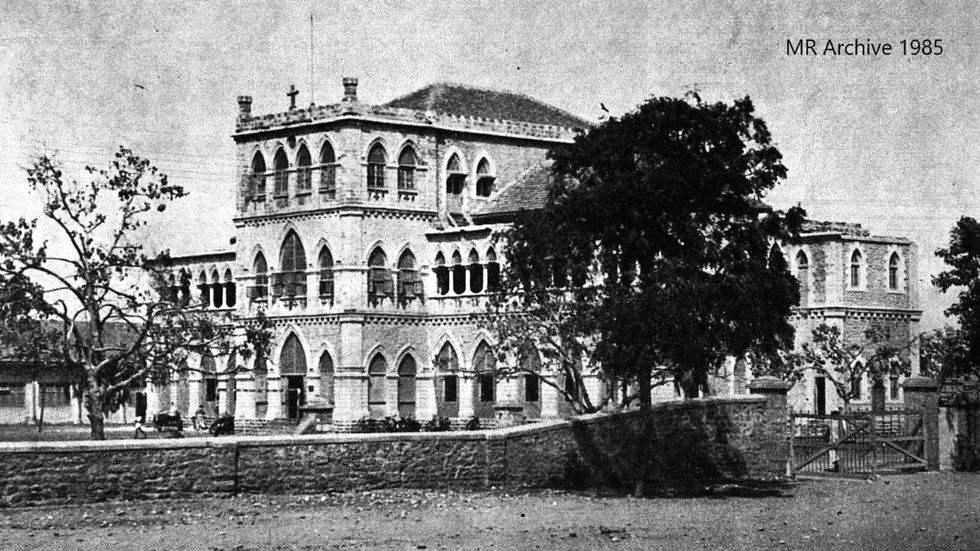
These individuals were more than just athletes—they symbolized the collective commitment of their community to the advancement of sports in Pakistan. Whether competing on national teams or excelling in local and regional tournaments, Christian athletes brought with them a spirit of dedication, sportsmanship, and excellence that significantly enriched the sporting landscape.
Beyond Hockey – broader sporting legacy
While field hockey remained the most prominent arena of success, Christian athletes made significant contributions across a wide spectrum of sports, including cricket, track and field, boxing, badminton, tennis, billiards and snooker, horse-racing, polo, and football. Participating actively in school, college, and club-level competitions, they served as vital pipelines to provincial and national teams. Although their achievements in these sports did not receive the deserved recognition, they played an essential role in strengthening Pakistan’s sporting foundation, particularly during the formative decades after independence.
In track and field, several Christian athletes rose to national prominence. Among the men were John Permal (celebrated as the fastest man in Pakistan for nearly a decade), Paul Alphonso, Domingo, Norman Brinkworth, Xavier D’Costa, Michael Gomes, Paul Liang, and Ronald Andrade. On the women’s side, standout athletes included Henrietta Braganza, Penny Domingo, Sophie Fernandes, Maria Lawrence, Rose D’Lima, Delores Almeida, Sylvia D’Mello, Connie Yeo, Romaldine Fernandes, and Cheryl Lucas—all of whom were athletes of national talent.
In table tennis, Michael Rodrigues emerged as one of the sport’s legends in Pakistan, dominating the national scene with five consecutive titles in the late 1950s and early 1960s. Michael Nazir of Rawalpindi was another formidable competitor. In the decades that followed, players like James Hu, Mario Pinto, Richard Shen, and Gervase Pecus upheld the Christian legacy in the sport. Among women, Yvonne Fernandes and Victoria Noronha were prominent names. One of the finest tennis players of his time was Austen Freitas, our very own Rod Lever!
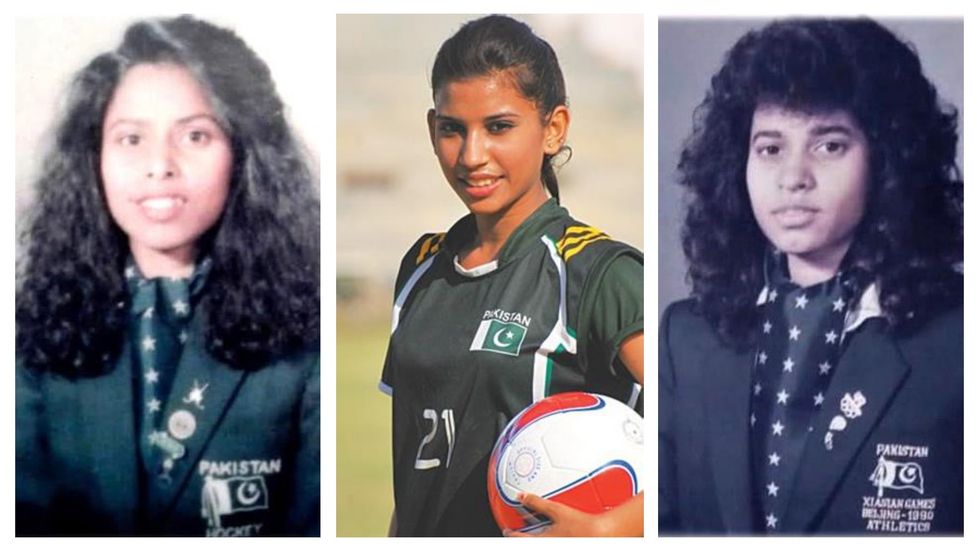
In badminton, trailblazers such as Mennen Soares (Thomas Cup player, 1954), Marie-Terez Braganza (1954), Gemma Rodricks (1958), and Coral Barboza (1971), all national champions, left a lasting mark on the sport. In cue sports, Lenny Dias in billiards and Earl Cordeiro in snooker were regarded among the best in the country. In women’s hockey, Earnestine Lucas, Venus Coutinho, and Maryann Almeida laid the groundwork for future generations of national stars.
Anglo-Indian excellence in Equestrian sports and beyond
The Anglo-Indian community played a prominent role in horse racing and polo in Pakistan. Many of the top jockeys and trainers at the race clubs in Karachi and Lahore hailed from this background. Notable names include Tyrone Fletcher, Tony Shrive, Christopher Fownes, Charlie Gaston, White, and Bill Alford. Besides the jockeys, Capt. Jack Fownes stood out as one of the leading horse trainers in the country. In polo, Walter (Bonny) Bornshin made a name for himself as a high-quality national player for Pakistan and served as captain of the PIA Polo Team.
Anglo-Indian athletes also made significant contributions across various other sports at the national level. In boxing, outstanding figures included Brian Rose, Clyde Rose, Robert Edwards, Sydney Greve, Norman Tindale, and Richard Clements. In badminton, Elsie Hunt, Josephine Alexander, and Yvonne Roberts earned distinction. In athletics, Ray Danton and Sydney Green represented national talent, while Rodney Judd gained recognition as a top Scrabble competitor.
The Christian contribution extended into sports journalism as well. Respected reporters such as Walter Fernandez, John Thakurdas, and Ian Fyfe were known for their insightful coverage of major national and international matches. Their thoughtful and critical writing helped bring attention to both the strengths and shortcomings of team selections and performances, adding depth and accountability to Pakistan’s sporting discourse.
Sportspeople of national prominence in later years
Since the 1990s, several Christian athletes—both men and women—have risen to national prominence, representing Pakistan with distinction. In cricket, Mohammad Yousuf (formerly Yousuf Youhana) stood out as one of the country’s most successful batsmen. Before his conversion to Islam, he was the only non-Muslim to have captained the Pakistan national team. He later served as a National Selector and Coach. Other Christian cricketers who reached the national level include Sohail Fazal, who played two ODIs for Pakistan in 1989, and Stephen John, a reliable first-class cricketer.
Christian representation in sports continues in Pakistan today. Shazia Hidayat, a track and field athlete, was the only female member of Pakistan’s team at the 2000 Sydney Olympics. Sidra Sadaf, a cyclist, earned a silver medal at the 11th South Asian Games. The Sohail Sisters—Sybil, Veronika, and Twinkle—are celebrated powerlifters, having won multiple gold medals at international championships. Gulfam Joseph, a talented shooter, qualified for the 2024 Paris Olympics, while Joyann Geraldine Thomas made history as the first Christian woman to represent Pakistan in football (soccer).
An underrated but indelible legacy
The period between 1947 and the late 1970s stands as a powerful testament to the role Christian athletes played in Pakistan's sporting history. In a young nation striving for international recognition, they stood tall as ambassadors of skill, commitment, and integrity. Their legacy is not just one of medals and matches, but of unity, perseverance, and national pride. Today, as Pakistan continues to evolve in the global sports arena, the foundational contributions of its Christian sports heroes deserve both remembrance and recognition.
Back To Top
Company
© 2026 NUKTA. Owned by Pulse Media Networks FZ-LLC All Rights Reserved.



Comments
See what people are discussing